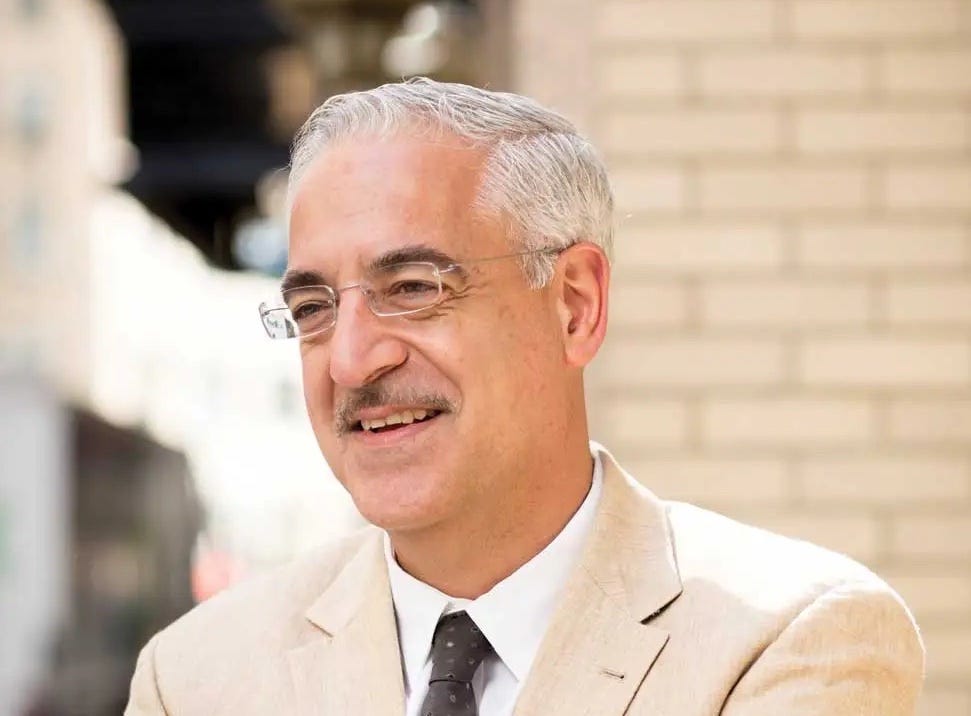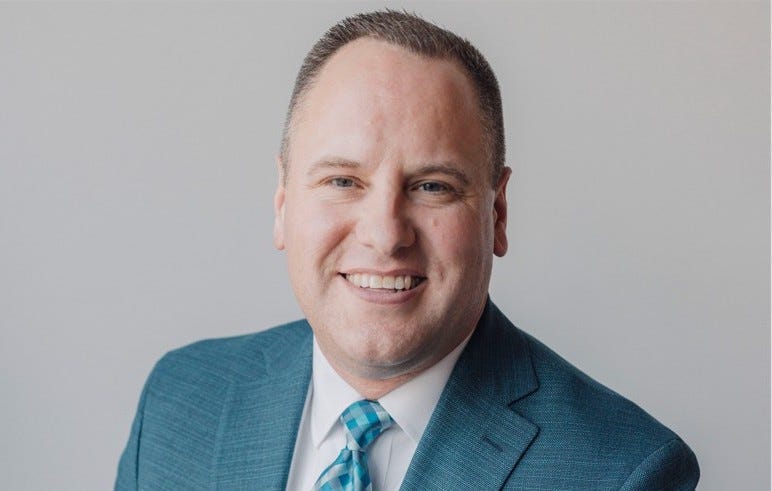Art of State
FreeCons combine principle with practical experience in governing
Among the hundreds of leaders convening this week in Arizona for the annual meeting of the State Policy Network are many Freedom Conservatism signatories and close allies.
That’s no surprise. FreeCons place a high priority on federalism — on reducing the role played in our politics, economy, and culture by the national government in Washington.
“The best way to unify a large and diverse nation like the United States,” we argued in the Freedom Conservatism Statement of Principles, “is to transfer as many public policy choices as possible to families and communities. Much of the discord in America today comes from the fact that too many decisions are made for us by centralized authorities.”
There are good abstract arguments for decentralizing American government. What sets many FreeCons apart from their rivals, Left and Right, is practical experience governing states and localities.
Today, we feature four signatories who have worked not only in the conservative movement but also in elected or appointed offices in the public sector.
Foster innovation
Buzz Brockway is vice president of public policy at the Georgia Center for Opportunity. He’s also a FreeCon signatory.
Brockway previously spent eight years as a member of Georgia House of Representatives, serving on committees such as Appropriations, Education, Insurance, and Governmental Affairs.
As a state lawmaker, he worked on legislation to fight human trafficking, reform election law, protect student data privacy, and provide additional funding for charter schools. He currently serves on Georgia’s State Charter School Commission.
Brockway graduated from the Georgia Institute of Technology with a bachelors of science in management science and a certificate in economics. He worked in plastics manufacturing for more than 20 years and, while in the legislature, ran a small business.
In an op-ed for The Center Square, he argued that the expansion of school choice would be an investment in Georgia’s economic future.
“By expanding access to education and fostering innovation within the traditional education system, these measures better prepare our children for the challenges and opportunities of the future job market. As we invest in the education and development of our youth, we invest in the prosperity and vitality of our state.”
Roadmap for tax relief
Jim Vokal is CEO of the Platte Institute and host of the podcast series Nebraskanomics. He’s also a FreeCon signatory.
A lifelong Nebraskan, Vokal graduated from Creighton University with a business degree, launching a 20-year career in banking and real estate. Prior to joining the Platte Institute in 2012, Jim was vice president of commercial banking at Mutual of Omaha Bank.
From 2001 to 2009, he served on Omaha City Council, including a stint as the city’s youngest-ever council president. Vokal subsequently served on the Metropolitan Entertainment & Convention Authority, participating in the development of several revitalization projects.
During his leadership of the Platte Institute and service on the Nebraska Board of Education Lands and Funds, Vokal has traveled to every corner of the state and appeared extensively in print, broadcast, and online media outlets.
In the North Platte Post, he described his think tank’s latest proposal for lowering the tax burden in Nebraska.
“Our 2023 tax reforms were a monumental achievement, but the demand for property tax relief continues to grow,” Vokal said. “This new resource provides a clear roadmap to achieve meaningful property tax cuts without compromising Nebraska's fiscal stability or overall competitiveness.”
Don’t lower the bar
Jim Stergios is executive director of the Pioneer Institute, a Boston-based think tank. He’s also a FreeCon signatory.
Prior to joining Pioneer, Stergios served as chief of staff and undersecretary for policy in the Massachusetts Executive Office of Environmental Affairs, where he drove efforts on water policy, regulatory and permit reform, and urban revitalization.
His prior experience includes founding and managing a business, teaching at the university level, and serving as headmaster at a preparatory school.
Stergios serves on the Board of Advisors at Boston University, where he earned a doctoral degree in political science. A constant presence on radio and TV programs, he has written for The Wall Street Journal, The Hill, and regional newspapers throughout New England.
In a recent Boston Globe op-ed, Stergios urged voters to reject a ballot measure that would allow students to graduate from high school without passing the Massachusetts Comprehensive Assessment System exam.
“Eliminating the MCAS graduation requirement would turn the clock back more than 30 years,” he wrote, “and return Massachusetts to a time when many students graduated without the skills to be successful.”
“Eliminating the objective bar the state has set won’t allow us to magically wish inequalities away, but it will make it easier to look the other way.”
Proven track record
Chris Cargill is founder and CEO of the Mountain States Policy Center. He’s also a FreeCon signatory.
A graduate of Gonzaga University, Cargill worked in television news for a decade and at another think tank for 13 years before founding the Mountain States Policy Center.
In 2021, Cargill was elected to the city council of Liberty Lake, Washington, where he previously served on the planning commission. Earlier this year, he became mayor pro tem.
Cargill’s work has been published in the Idaho Statesman, The Coeur d'Alene Press, The Helena Independent Record, the Spokesman-Review, The Seattle Times, the Tri-City Herald and Real Clear Policy. He is also a familiar voice on radio stations throughout the region.
In a recent op-ed for the Idaho State Journal, Cargill argued that state policymakers should remove regulatory barriers to the expansion of broadband.
“By partnering with industry leaders that have the expertise of not only building, but operating, maintaining, and upgrading these broadband networks,” he wrote, “Idaho will ensure the long-term success of community connectivity.
“To avoid waste and project failures, Idaho should focus on working with experienced providers with a proven track record of success in the broadband space.”
In the mix
• In a post at the American Institute for Economic Research, FreeCon signatory Alexander William Salter observed that the Republican Party’s 2024 platform said little of consequence about massive federal deficits. Citing the Freedom Conservatism statement, Salter wrote that “ignoring a problem doesn’t make it go away.
“Perpetual deficits and ever-growing national debt threaten the economy, increase partisan rancor, and imperil national security. If conservatism is about conserving our founding principles, the GOP’s abandonment of spending restraint is one of the most anti-conservative policy shifts in a generation.”
• At National Review, FreeCon signatory Noah Rothman credits former South Carolina Gov. Nikki Haley for diagnosing what ails the GOP’s ineffective response to Kamala Harris. Donald Trump won’t win by “talking about crowd sizes” or “whether she’s dumb,” Haley said last week on Fox. “Republicans need to be fighting for suburban women, for college-educated [voters], for independents, for moderate Republicans, and for conservative Democrats.”
Rothman agrees. “Voters still believe their interests and America’s would be better served by a Trump presidency than a Harris administration,” he argued, but “have little faith that Trump can competently pursue or secure those interests without succumbing to his own neurosis.”
• Did the Tax Cuts and Jobs Act reduce charitable giving? Some claim it did, by reducing the number of taxpayers who itemize. FreeCon signatory Jack Salmon, director of policy research at the Philanthropy Roundtable, challenges that conclusion. Since 2017 “nominal charitable giving has continued to rise while real giving has remained relatively constant, driven by increased disposable income and economic growth, underscoring the complexity of tax policy impacts on philanthropy.”




